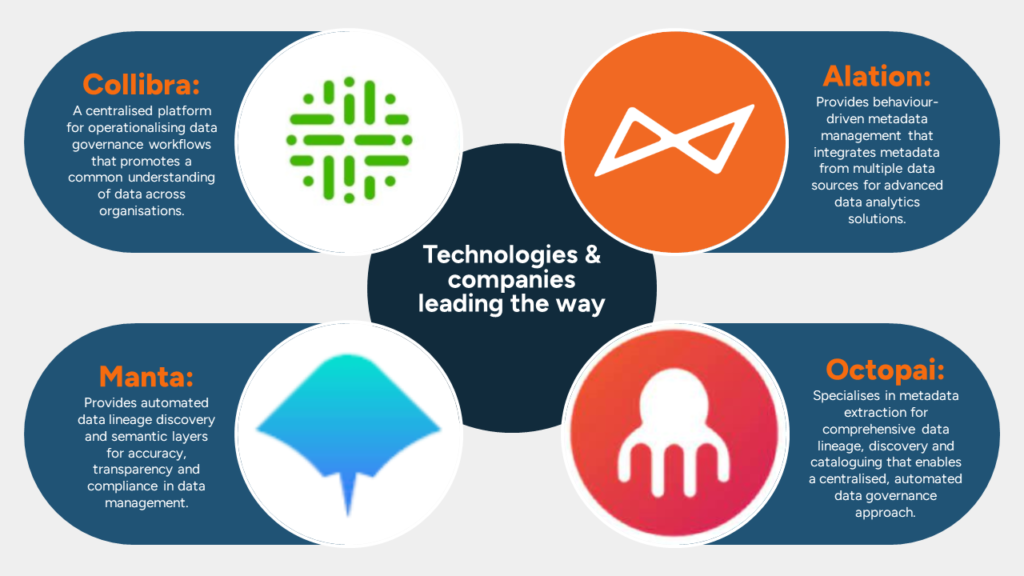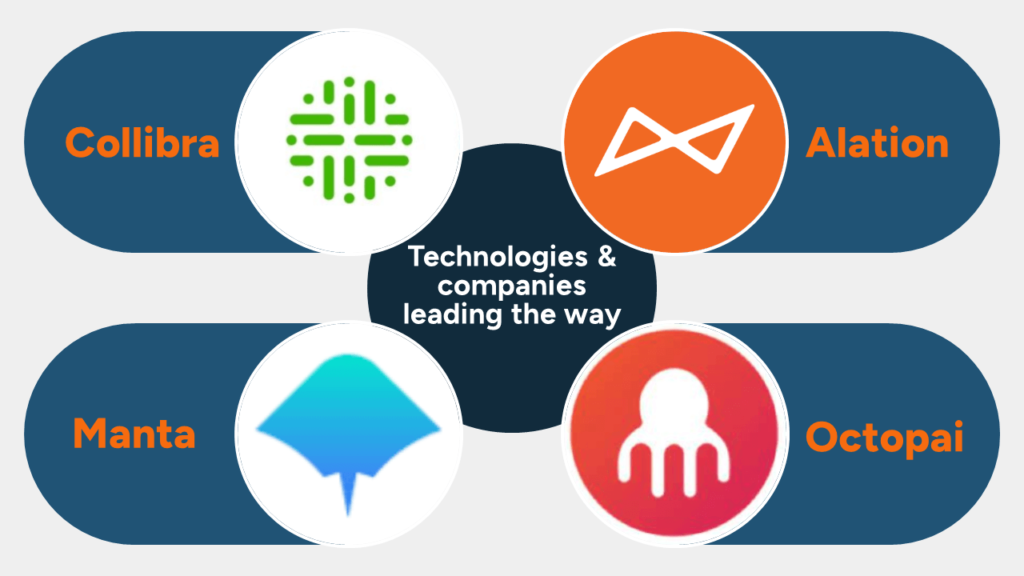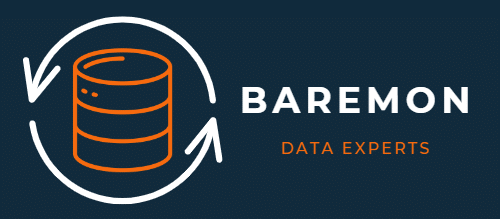Metadata & Data Governance
Metadata and data governance are two interrelated components that are critical to effective database management. Metadata, essentially ‘data about data’, outlines attributes such as the format, source and structure of data. Data governance is a comprehensive framework that prescribes authorised actions with data and defines who is allowed to do what and under what circumstances.
Expanded role of metadata
- Improved data localisation: Metadata not only helps to locate data records, but also to understand their relevance and thus to make strategic use of data.
- Enhanced data classification: Metadata can now also be automatically categorised, significantly improving data management by identifying data types such as sensitive or public.
- Dynamic audit trails: Modern metadata systems not only track changes for compliance, but also help with real-time monitoring of data integrity and security.
In-depth importance of data governance
- Ensuring data quality: Governance ensures data accuracy through comprehensive policies and automated validation processes.
- Sophisticated data security: Advanced governance tools provide granular access control, ensuring data security at multiple levels.
- Improved regulatory compliance: Governance frameworks now include AI-based tools to adapt to changing regulations such as GDPR or HIPAA.
Synergy: Enhanced by technology
- Automated policy enforcement: New tools utilise metadata to automate governance policies, significantly reducing manual monitoring.
- Informed data sequencing: Metadata now plays a central role in data sequencing and documents the data transformations that are important for governance.
- Strategic decision making: Governance relies on enriched metadata for data lifecycle management, from usage to archiving and deletion.
Implementation strategies: Leveraging technology
- Integration with leading tools: Choose governance and metadata tools that are compatible with existing systems and leverage integration with platforms such as Collibra, Alation and Manta.
- Reimagine data governance: Appoint data stewards who are adept at managing advanced metadata systems and enforcing dynamic governance policies.
- Targeted training and awareness: Educate your employees on the latest metadata and governance tools while ensuring compliance with established policies.
Challenges and advanced solutions
- Complexity: Manage the volume and complexity of data with specialised software such as Alation and Octopai, which offer advanced metadata management and data governance solutions.
- Minimise human error: Automate metadata creation and management processes and perform regular audits to ensure data integrity.
- Cost-benefit analysis: Whilst the initial cost of implementing robust systems may be high, the long-term benefits in terms of compliance and efficiency often outweigh these costs.
Technologies and companies leading the way


- Collibra: A centralised platform for operationalising data governance workflows that promotes a common understanding of data across organisations.
- Alation: Provides behaviour-driven metadata management that integrates metadata from multiple data sources for advanced data analytics solutions.
- Manta: Provides automated data lineage discovery and semantic layers for accuracy, transparency and compliance in data management.
- Octopai: Specialises in metadata extraction for comprehensive data lineage, discovery and cataloguing that enables a centralised, automated data governance approach.
Conclusion
With these technological advances, Baremon can help organisations establish and improve their metadata and data governance frameworks and adapt to the evolving landscape of data management.
For a full understanding and integration of these leading technologies and tools, we encourage you to review the detailed offerings on their respective websites:
